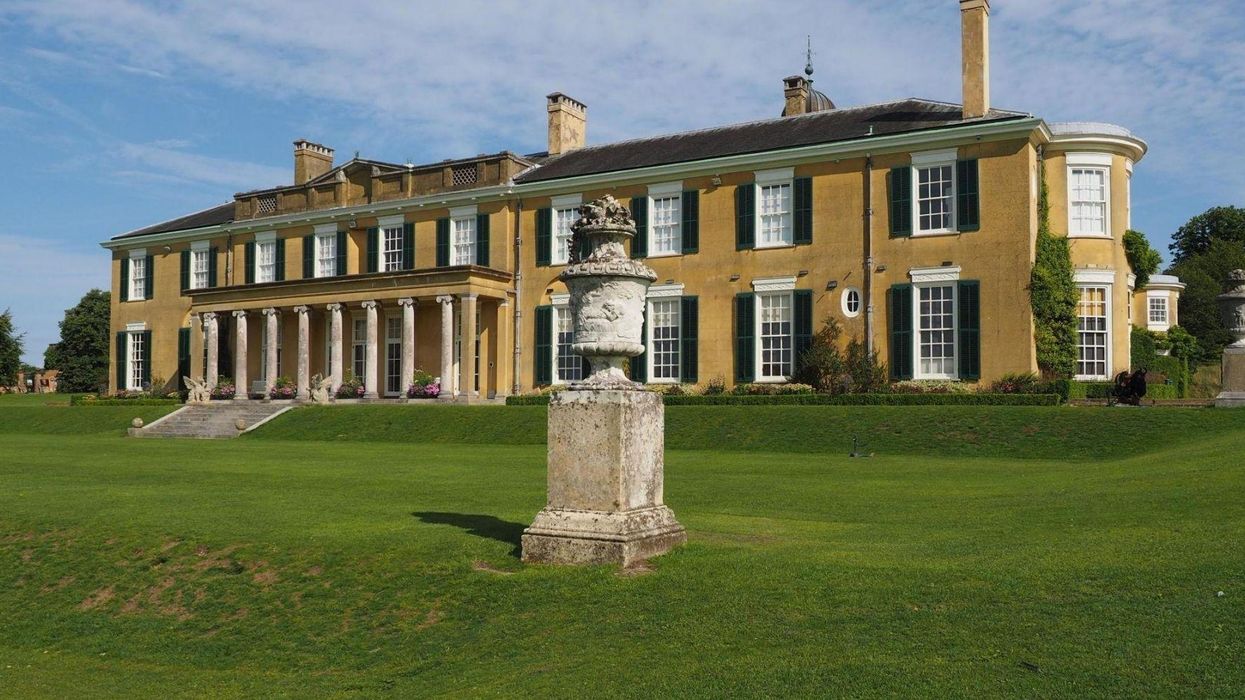News
Isobel van Hagen
Aug 25, 2020

Rex Features
In the wake of the recent global Black Lives Matter protests, statues commemorating slavery have been toppled around the world.
And the issue of how best to treat historical monuments and buildings with links to slavery remains at the forefront of political discussion.
In the UK, some have wanted to 'protect' emblems of the UK's anti-Black past, with the hope that they can be used to educate people about the slave trade.
But after a new furore featuring the National Trust, it seems a very vocal minority of Britons now want it both ways.
So what happened?
In an effort to expand the country’s understanding and knowledge on these issues, the National Trust on Sunday tweeted a series of objects in their care that have direct and indirect links to slavery and colonialism.
The trust, which has around 300 historic country houses among its 500 UK properties, tweeted:
“Many of the places we care for have direct or indirect links to slavery, including objects made from materials obtained by forced labour,”
In the thread, the trust shared images and background information on objects such as Caribbean mahogany furniture, which it said "came at a human cost" during the 18th century. The trust said they were working to "uncover, research and tell the histories of slavery and colonialism... we hope to open debates that further our collective understanding."
“Mahogany trees were felled by enslaved Africans in dangerous virgin rainforest and shipped back to Britain to be made into fine furniture,” the organisation wrote.
How did people react?
Many praised the organisation for acknowledging and highlighting Britain’s historical involvement.
But bizarrely lots of people were also really angry about it.
Some even threatened to cancel their memberships, accusing the trust of “getting political”.
One user replied to the thread angrily: “My DD [direct debit] is cancelled. Our history is what it is. None of us can do anything about the past. Support for the National Trust is based on enjoyment of historical buildings and a wish to help preserve them. I think you've pretty much removed that for me now.”
Please do not ‘educate’ or lecture us,” another person wrote. “I go round houses to appreciate furniture, art and gardens. We don’t need to have your view of history forced upon us. We know our past was imperfect - think of the servants who worked there. Steer clear of politics - we go for pleasure”.
Another person called on Boris Johnson to intervene, while another wrote: "Continue down this path and we are cancelling our membership.”
Yes, really.
In this case, "steering clear of politics" seems to mean 'ignore historical context'. Which is particularly odd given the events of the last few months.
In fact, this fury at the National Trust follows proclamations that keeping statues of people like slave trader Edward Colston in place can ‘protect’ the UK’s history and help to educate people about slavery.
So to those now threatening to cancel their National Trust memberships, we ask: which is it?
Do you want to educate about slavery, and view buildings and monuments in their proper context as a way of doing this?
Or do you just want to avoid talking about slavery and carry on as normal?
Some people thankfully called this obvious contradiction out on social media...
“Let's be clear. These people are angry at National Trust for correctly identifying & publishing historical origin of their artefacts,” @bethwritesstuff tweeted, typifying the issue at hand. “If your interest in history requires you to blank out fact, you're interested in having a preferred narrative reflected back, which isn't history."
It seems like a lot of people are happy to get behind statues of figures who were actively racist under the guise of 'education'. But once the National Trust try to spread knowledge about the uncomfortable history behind some of these beloved monuments? They instantly cancel their memberships.
Seems pretty hypocritical, doesn't it?
Top 100
The Conversation (0)













